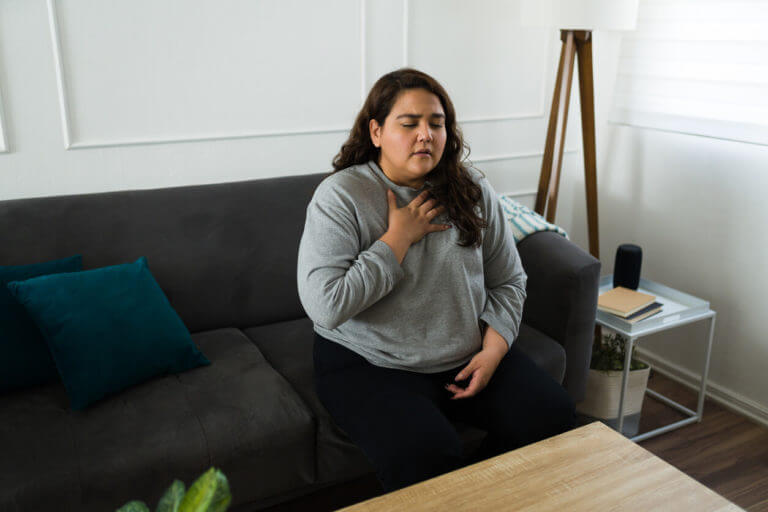
Anxiety disorders are some of the most prominent mental health conditions, affecting millions around the world. They go beyond the typical feelings of nervousness or worry that everyone experiences from time to time. Anxiety disorders can be overwhelming, causing intense fear and distress that interfere with daily activities, relationships, and overall quality of life.
Let’s discuss the types, symptoms, and causes of anxiety disorders.
What are Anxiety Disorders?
Anxiety disorders encompass a variety of conditions, each resulting in excessive and persistent fear or worry in situations that are not threatening.
Unlike temporary anxiety that results from a stressful event, anxiety disorders last for more than six months and can worsen if not treated.
Understanding the different types of anxiety disorders is a step forward in recognizing the signs and seeking help.
1. Generalized Anxiety Disorder (GAD)
People with GAD experience constant, exaggerated worry about everyday life, even when there is little or nothing to provoke it.
This worry is difficult to control and can affect various aspects of their lives, including work, school, and relationships.
2. Panic Disorder
Characterized by sudden, intense episodes of fear or discomfort known as panic attacks, panic disorder can cause physical symptoms such as:
- Chest pain
- Heart palpitations
- Shortness of breath
These episodes often occur unexpectedly and without a clear trigger.
3. Phobias
Phobias are intense fears of specific things or events, like heights, flying, or particular animals.
These fears are irrational and disproportionate to the actual danger posed by the object or situation.
4. Social Anxiety Disorder
Also known as social phobia, this disorder involves a significant fear of being judged or negatively evaluated by others in social or performance situations. It can lead to:
- Avoidance of social interactions
- A profound impact on personal and professional relationships
5. Other Types
There are other forms of anxiety disorders, including agoraphobia, separation anxiety disorder, and selective mutism, each with unique symptoms and challenges.
Symptoms of Anxiety Disorders
While anxiety symptoms can vary widely depending on the type, common signs include:
- Persistent worry or fear that is out of proportion to the actual situation
- Avoidance of situations or activities due to fear
- Physical symptoms such as rapid heartbeat, sweating, trembling, and fatigue
- Difficulty concentrating or sleeping
Causes of Anxiety Disorders
The exact cause of anxiety disorders is not fully understood, but a combination of genetic, environmental, psychological, and developmental factors is believed to play a role.
Traumatic life events such as experiencing abuse or witnessing violence can also trigger anxiety disorders in some individuals.
When to Visit a Therapist for Anxiety Disorders
Recognizing when to seek professional help is a crucial step in managing anxiety disorders effectively. Here are some key indicators that it is time to visit a therapist:
Persistent Worry or Fear
Do you find yourself constantly consumed by worry or fear that is disproportionate to the situation at hand, and these feelings persist for an extended period?
If so, it may be a sign that you are experiencing an anxiety disorder.
Physical Health Concerns
Anxiety can manifest physically, causing symptoms such as fatigue, headaches, muscle tension, and gastrointestinal issues.
If your physical health is suffering and there is no apparent medical cause, anxiety might be the underlying issue.
Changes in Sleep or Appetite
Notable changes in your sleeping patterns or appetite, whether it is too much or too little, can be indicative of anxiety.
These changes can further impact your health and exacerbate anxiety symptoms, creating a cycle that is hard to break without professional help.
Avoidance Behavior
Avoiding situations, places, or activities you once enjoyed due to fear or discomfort can signal that anxiety is limiting your life.
When your world starts to become restricted because of anxiety, it is a clear sign that seeking treatment could help broaden your horizons again.
Impact on Relationships and Work
If anxiety is affecting your performance at work, school, or in your personal relationships, it may be time to consider therapy.
Struggles in these areas can lead to a decline in self-esteem and overall well-being.
Intense or Overwhelming Emotions
Feeling overwhelmed by intense emotions that seem uncontrollable or experiencing panic attacks are strong indicators that therapy could be beneficial.
A therapist can provide strategies to manage these feelings and reduce their intensity.
Difficulty Concentrating
Anxiety can make it hard to focus on tasks, leading to procrastination and decreased productivity. If you notice a significant change in your ability to concentrate, it may be related to anxiety.
Seeking a Path Forward
It is important to remember that reaching out for help is a sign of strength, not weakness.
Therapy can offer a safe space to explore your feelings, understand the root causes of your anxiety, and develop coping strategies tailored to your individual needs.
Highly Skilled and Compassionate Therapist Near Me in Sherman, TX
If you are feeling overwhelmed with life, the compassionate providers at Carrus Behavioral Hospital can help. Carrus Behavioral Hospital offers evidence-based therapeutic approaches for a variety of mental health conditions, such as anxiety disorders, PTSD, OCD, and ADHD. Cognitive behavioral therapy is one of the methods we use to help our patients identify harmful patterns of thinking and change them. Also included in our outpatient services are anger management help, coping skills development, medication management, and nutritional therapy.
We offer both inpatient and outpatient services. For any questions or to schedule an appointment with us, call our office today at (903) 870-2600. We look forward to your call.
We look forward to serving you!

